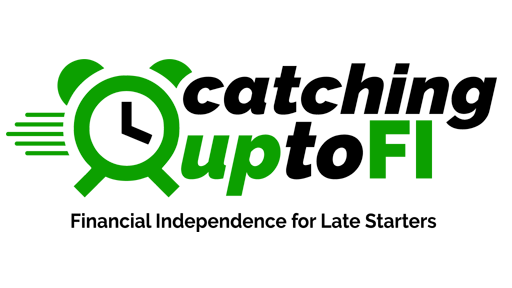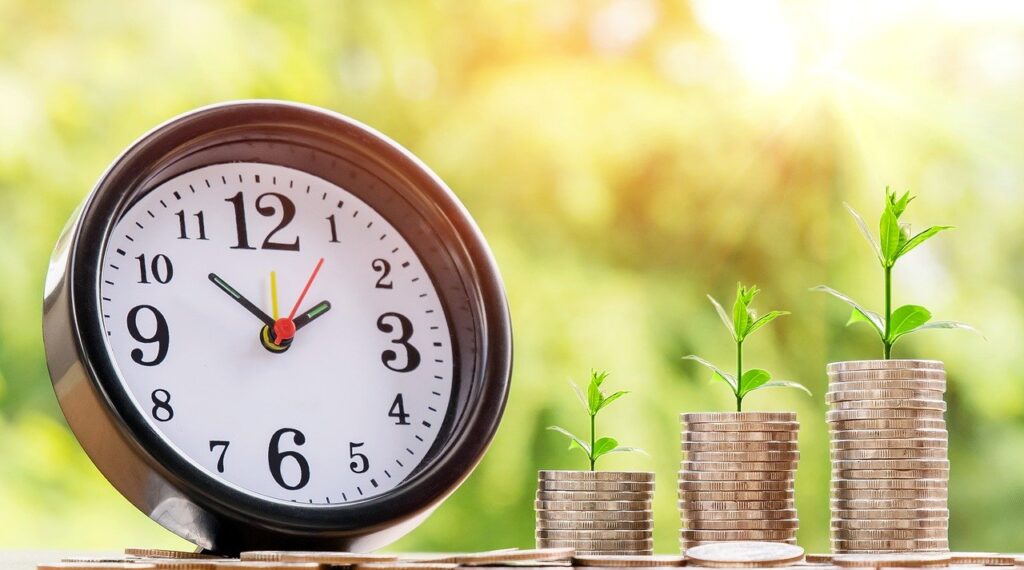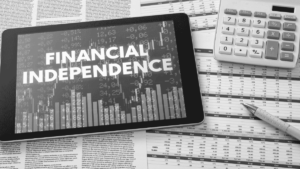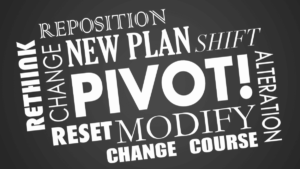At A Glance – Harnessing the power of compound interest or compounding is probably THE most important factor in becoming Financially Independent.
What Is Compound Interest or Compounding
Compound Interest is the eighth wonder of the world. He who understands it, earns it…he who doesn’t… pays it. Compound interest is the most powerful force in the universe.
Compound interest is the greatest mathematical discovery of all time.
Albert Einstein
Those are powerful quotes from a powerful mathematician! Why would Albert Einstein say that about compound interest? Because it can mean the difference between barely having enough money to get by in your retirement or being quite comfortable.
Let’s look at what compounding is and what it can do for you.
Definition of Compounding
Here’s a textbook definition of compounding. Compounding is the process in which an asset’s earnings, from either capital gains or interest, are reinvested to generate additional earnings over time. This growth occurs because the investment will generate earnings from both its initial principal and the accumulated earnings from preceding periods. Compounding, therefore, differs from linear growth (simple interest), where only the principal earns interest each period.
In plain English, compounding is interest on interest which magnifies returns over time.
Here’s an example. Let’s say you deposited $1,000 in a savings account and the bank will pay you 10% interest per year. (I know you can’t get 10% right now, but I’m just using round numbers).
In year One, you would earn $100 in interest (1,000*10%). Your account would then total $1100.
In year Two, your $1100 earns 10% interest or $110. Add that to your principle and you would have $1,210.
In year Three, you would earn 10% on $1210 or $121. This would total $1,331.
Each period that the interest is added to your account, it is calculated on the total amount in the account. Not just the original deposit of $1,000.
| $1,000 Invested at 10% Comp. Interest per Year | Gain | Total |
| Year 1 (1,000*0.10) | $100 | $1,100 |
| Year 2 (1,100*0.10) | $110 | $1,210 |
| Year 3 (1,210*0.10) | $121 | $1,331 |
Compound Vs Simple Interest
Simple interest can be defined as interest paid only on the original principal, not on the accrued interest. In other words, the interest will be calculated each period on the original deposit.
In our example above, simple interest would only be calculated on the original deposit of $1,000. So, each year the interest paid would be $100. With simple interest, at the end of 3 years, you would have $1,300.
| $1,000 Invested at 10% Simple Interest per Year | Gain | Total |
| Year 1 (1,000*0.10) | $100 | $1,100 |
| Year 2 (1,000*0.10) | $100 | $1,200 |
| Year 3 (1,000*0.10) | $100 | $1,300 |
Let’s look at the totals for these two examples side by side for 1, 5, 10, 20 and 40 years.
| $1,000 Invested at 10% | Simple Interest | Compound Interest |
| Year 1 | $1,100 | $1,100 |
| Year 5 | $1,500 | $1,610 |
| Year 10 | $2,000 | $2,594 |
| Year 20 | $3,000 | $6,727 |
| Year 40 | $5,000 | $45,259 |
You can see why compounding is described as a Mathematical Explosion! The difference is small in the beginning, but as the interest compounds over many years, the difference in your total investment is massive.
The Magic Penny
Here is a fun riddle. Would you rather have a penny that doubles every day or a million dollars? Interesting question. Let’s see…
| Start of Day 1 | $0.01 |
| End of Day 1 | 0.02 |
| End of Day 2 | 0.04 |
| End of Day 3 | 0.08 |
| End of Day 4 | 0.16 |
| End of Day 5 | 0.32 |
| End of Day 6 | 0.64 |
| End of Day 7 | 1.28 |
| End of Day 8 | 2.56 |
| End of Day 9 | 5.12 |
| End of Day 10 | 10.24 |
| End of Day 11 | 20.48 |
| End of Day 12 | 40.96 |
| End of Day 13 | 81.92 |
| End of Day 14 | 163.84 |
| End of Day 15 | 327.68 |
Which did you choose? Want to change your choice? That penny’s not looking very appealing, but let’s continue.
| End of Day 16 | 655.36 |
| End of Day 17 | 1,310.72 |
| End of Day 18 | 2,621.44 |
| End of Day 19 | 5,242.88 |
| End of Day 20 | 10,485.76 |
| End of Day 21 | 20,971.52 |
| End of Day 22 | 41,943.04 |
| End of Day 23 | 83,886.08 |
| End of Day 24 | 167,772.16 |
| End of Day 25 | 335544.32 |
| End of Day 26 | 671,088.64 |
| End of Day 27 | 1,342,177.28 |
| End of Day 28 | 2,684,354.56 |
| End of Day 29 | 5,368,702.12 |
| End of Day 30 | 10, 737418.24 |
As you can see, the effect of compounding is slow as molasses at first, but then later, takes off like a rocket! Your investments can make more money than you do. The effect of compounding on investments has been described as a perpetual money machine!
What does this mean for you? Invest early and invest often. And leave it alone. Don’t sacrifice your future for something you think you can’t live without today.
A Real-World Example
So far I’ve given you hypothetical examples in order to show you how this works. Let’s look now at a real-world example.
I’m going to use 2 people, Earl the Early Bird and Paul the Procrastinator. Earl starts saving and investing 20% of his $36,000 salary at 22 when he starts his career after college/trade school. This means he has $600/month to invest. He can invest 20% because he has not let his lifestyle creep until it takes all his income. Earl invests his money in low-cost, broad-based index funds that have returned an average of about 8%/year for the last 60 years.
Paul has graduated college with a great starting salary of $90,000/year. He has set up his life to reflect his hard work and good fortune. In other words, he has allowed his lifestyle to creep up to meet his income. He really can’t save much at first because he needs to buy a house and he has a hefty car payment. Ten years later at 32, he decides he should probably start saving for retirement. He saves and invests 10% of his salary which he feels good about. This means he is investing $750/month. Paul is putting his money into the same low-cost index funds as Earl.
Let’s see how they do at age 32, 42, 52 and 62.
| Earl | Paul | |
| Age 32 | $111,837 | $0.00 |
| Age 42 | 358,764 | 139,796 |
| Age 52 | 906,902 | 448,455 |
| Age 62 | 2,123,675 | 1,133,627 |
Earl is only ahead of Paul by a little over $100,000 when Paul starts to invest, but ends up beating him by $1M! Even though Paul is investing more per month and has a much higher salary, the value of time was in favor of Earl.
What Does This Mean For You And What If You’re Starting Late?
The answer to this is simple, but not always easy. It means save everything you can as often as you can. You can see in the examples above that time and interest rate make a big difference in the end result. Compounding works FOR you as you grow your savings. The longer your money is invested, the more effect compounding has. Starting as early as possible will give you more time to save. Also, the rate affects the outcome of compounding. The higher the rate, the more your money will earn. As interest is added on top of interest, your money will grow faster over time.
What if you can’t save 10% or 15% of your salary? You might have money that is not working as hard for you as it should, you just need to find it. If you don’t know where to start, check out my other articles on Calculating Your Net Worth, Tracking Your Spending and Budgeting. These should give you a place to start looking for extra money to save.
What if you’re not 22?!!! I feel your pain. Remember the name of my website…Started At 50. That’s because I was 50 years old when I started saving. Literally, my Net Worth was Zero at age 50. If you are late to the game, first you need to know it’s not TOO late. You have time, just not as much time. Start saving everything you can get your hands on NOW. Don’t wait another day. Everything you can do today will make your future more comfortable and less stressful.
Can Compounding Work Against Me
Compounding can also work AGAINST you. The same power that allows your investments to grow will also cause your debt to march relentlessly upward. Some types of debt like credit card debt are calculated with compounding interest and not simple interest. As your credit card balance grows with purchases, the interest on interest calculation causes the balance to grow even faster.
If you do not pay your credit card bills in full every month, you are paying the bank a huge premium for the privilege of carrying their card. At the time of this writing, interest rates on savings accounts are below 1% per year, whereas credit card rates are anywhere from 16-30%. The first step in boosting your savings rate is to pay off your credit cards!
Credit cards are not the only type of loan that is calculated with compound interest. If you have other types of loans, check to see what kind of interest they carry.
Where Can I Find Compounding?
Compounding happens in several places. The most obvious would be at your bank with a savings account or CD. Usually, the bank guarantees a rate of interest for a period of time. Unfortunately, interest rates are very low right now (March 2021) and have been for a while.
Compounding also happens in the stock market. Investment vehicles such as mutual funds, stocks, bonds, and T-bills are some examples. The compounding happens when interest and dividends are paid and with increases in the share price. (You must remember the stock market will go up and down on any given day, month or year. The point is over time, stocks go up)
The way to ensure you enjoy the effects of compounding is to leave your interest and dividends in the account to compound into the future.
Conclusion
Compounding is a force you want working for you and not against you. This means saving early and often. It also means pay off your credit cards.
Here’s another quote for you. This time from Warren Buffet.
My wealth has come from a combination of living in America, some lucky genes, and compound interest.
Key Takeaway – Harnessing the power of compounding is probably THE most important factor in becoming Financially Independent. Save early and save often.
Assignment 1 – Look at how much you are saving today. Can it be increased?
Assignment 2 – Are you carrying a balance on your credit cards? Look at their current interest rate. Try to reduce the rate or pay it off. (Here is an article about paying your credit cards off)









